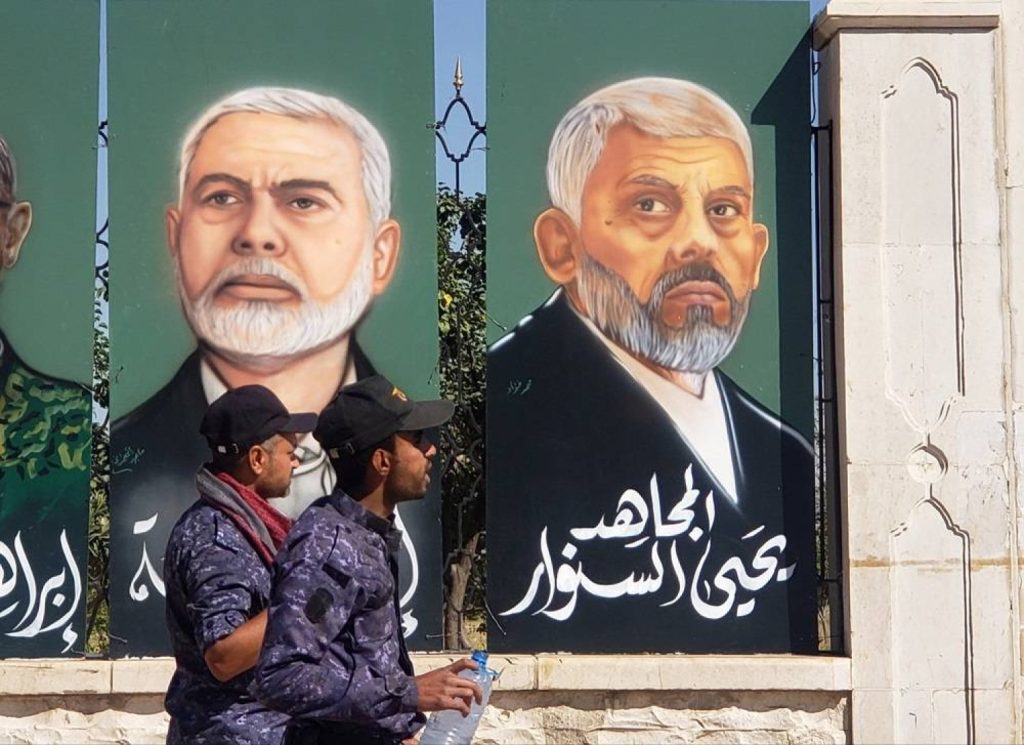Hamas is expected to select a new political leader from outside Gaza following the death of Yahya Sinwar, while his brother, Mohammad Sinwar, is likely to assume a more significant role in directing the conflict against Israel, experts say.
The group will need to weigh the interests of its regional backers, including Qatar, where most of the leading candidates for the position currently reside, according to a Reuters report.
Yahya Sinwar, allegedly responsible for orchestrating the 7 October 2023 attack that escalated into the ongoing Gaza war, was killed by Israeli forces during a gunfight on Wednesday. This marks the second Hamas leader killed in less than three months; the previous leader, Ismail Haniyeh, was assassinated in Iran in July, reportedly by Israeli forces.
Sinwar’s tenure combined both the military and political leadership in Gaza, but this arrangement is unlikely to be replicated. The group has been significantly weakened by over a year of intense Israeli assaults, which have killed thousands of its fighters and eliminated senior leaders.

Khalil Al-Hayya, Sinwar’s deputy, is seen as a potential successor. On Friday, he reiterated that Israeli hostages would not be released until Israeli forces withdrew from Gaza and the war concluded. Hayya currently serves as Hamas’ chief negotiator.
Hamas has a track record of quickly replacing fallen leaders through its Shura Council, the group’s top decision-making body representing members across Gaza, the West Bank, Israeli prisons, and the Palestinian diaspora. This council will choose the new head, who is expected to have the authority to engage in ceasefire talks, even if based outside Gaza.
Apart from Hayya, other candidates include Khaled Meshaal, former politburo chief, and Mohammad Darwish, head of the Shura Council, according to analysts and Hamas sources.
Ahead of any decision, Hamas is expected to consult Qatar, which has played a major role in ongoing ceasefire negotiations, and other regional powers.
With Yahya Sinwar’s death, Hamas’ leadership in Gaza has temporarily passed to Hayya, based in Qatar. However, experts suggest that ongoing conflict and communication challenges may limit his ability to maintain daily contact with the ground forces, leaving the Qassam Brigades, Hamas’ armed wing, in greater control.
Sources indicate that Mohammad Sinwar, a veteran commander of the Qassam Brigades, will likely become more prominent. Despite being on Israel’s most-wanted list and surviving several assassination attempts, he remains influential within Hamas.
Hamas’ decision-making is influenced by Iran, a key ally, whose support will be crucial for the group’s recovery post-conflict. Both Hayya and Darwish are considered close to Tehran, while Meshaal’s chances are uncertain due to past tensions with Iran following his support for the 2011 Syrian uprising against President Bashar Al-Assad.
Hamas gunmen killed over 1,200 people and captured 250 others during the 7 October attack, according to Israeli reports. However, Israeli media outlet Haaretz later disclosed that Israeli army actions, involving helicopters and tanks, were responsible for many of the casualties. The ongoing Israeli offensive has reportedly killed more than 42,000 Palestinians and caused widespread displacement, according to Palestinian authorities.


